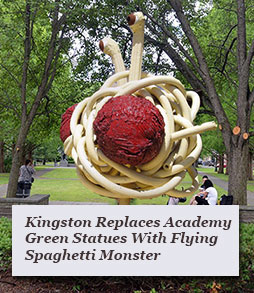
The coronavirus pandemic has taught us a lot. Though it’s far from over, the worst of the first wave has passed here in New York State, so now is a good time to reflect.
Many of us noticed the importance of spending quality time with family; liberated from FOMO (fear of missing out), we were able to be truly present. Others who began new relationships found that it was easier to get to know each other with physical intimacy temporarily off the table. We also saw who in the economy was truly essential; they have our gratitude, and deserve better pay and benefits. Still others found they could do their jobs just as well from home; when things go back to normal, we should use these lessons to cut down on commutes, which will give workers more time to spend with loved ones and reduce carbon emissions.
While these insights have been widely discussed, one other important takeaway from the lockdowns has not received the attention it should: The benefits of day-drinking. Formerly associated only with hardcore alcoholics and weekend activities like boating and barbecues, millions of Americans have discovered over the last few months the positive aspects of this practice go well beyond such niche applications. Here are a few.
Locus of control
A recurring theme in philosophy is this: That the surest path to dissatisfaction is to concern oneself with things one can’t control. From the stoic Epictetus to Adlerian psychology, the message is clear: To be concerned with what others think of you, what they do or think, with anything that could be called “news,” in short, anything beyond our own actions, is folly. This state is difficult to fully achieve, but it can be accessed relatively easily by taking a few drinks. The idea that this is something that we shouldn’t avail ourselves of during working hours is not only wrong; it’s dangerous. It might even be violence.
An aesthetic experience
Young people today are more interested in curated experiences than conspicuous consumption. This trend can be seen in the growth of “foodie” culture and increased quality of the fare at local restaurants. Cocktails and craft brews are a perfect fit for this change in taste. Cocktails in particular offer virtually unlimited opportunities for skillfully crafting just the right drink for the situation. A mojito while watching the sunset poolside; a piña colada while browsing Tinder; a gin & tonic while listening to Gilbert & Sullivan… the possibilities are endless! And who says we need to wait until nights and weekends to achieve such intoxicatingly perfect pairings? We’re adults and last time I checked, this is a free country!
Permission to relax
Americans work harder than almost any other nation. The causes are many, ranging from comparatively stingy employer-provided vacation time to the cultural inheritance of the Protestant work ethic. The results, while not clear-cut, suggest this isn’t good for our well-being. It’s probably not good for our productivity either. It can be difficult to unplug and leave our work behind us, especially if one’s job involves responding to emails or dealing with problems that can occur at any time. Meditation masters can do this with mindfulness training. For the rest of us, there’s the three-martini lunch or a step out onto the deck with a cold one!
Work schmurk!
Is it not obvious, from the lessons of the last few months, that few people actually need to work, the rest of us are just wasting time, and that the government can print endless amounts of money to pay us to stay home? Why end it now, just when we’re hitting the best time of summer? The number one reason, according to Pew, that Americans give for NOT regularly indulging in day-drinking is “fear of losing job/lost productivity.” Clearly these concerns have been shown to be misplaced. Not is most of our “productivity” completely pointless, getting laid off means getting paid to stay home and drink!!! Not seeing any downside here guys…
A new normal
In the near future, it’s likely anyone who can’t work from home will be replaced with a robot, and anyone who can by an algorithm. Nearly all profits will go to the few people who sit atop a monopolistic companies, who will in turn be taxed heavily to provide for the 99 percent of us rendered economically useless. What will we do then? Fret about our lack of purpose? Burn the whole thing down? Some will surely do so, but in the long run, great movements of spirit and justice must exhaust themselves, collapse under their own contradictions or break on the shores of immutable human nature. Order will be restored, as it always has been, and we will be left with only ourselves, in the here and now, choosing to project meaning onto our own lives or trudge on in meaninglessness, waiting for our inevitable, and likely painful, ending. Either way, a drink couldn’t hurt!


